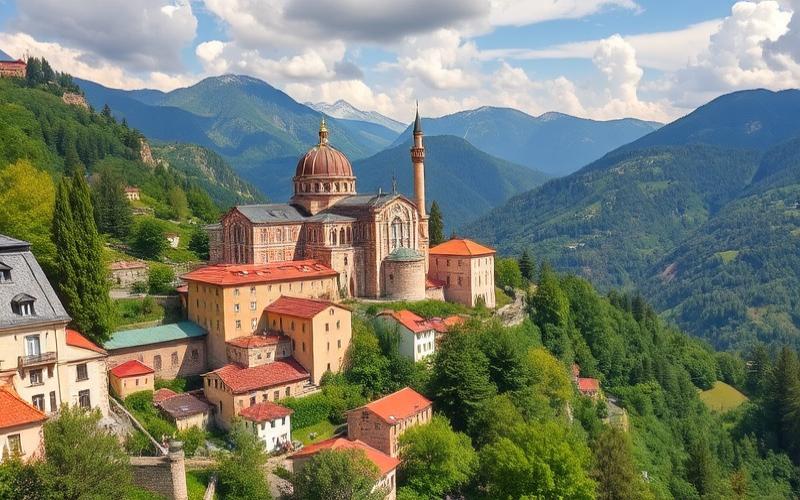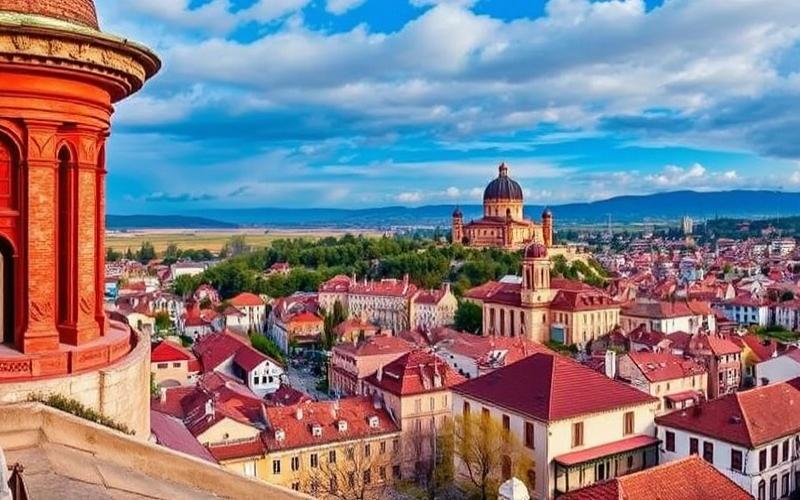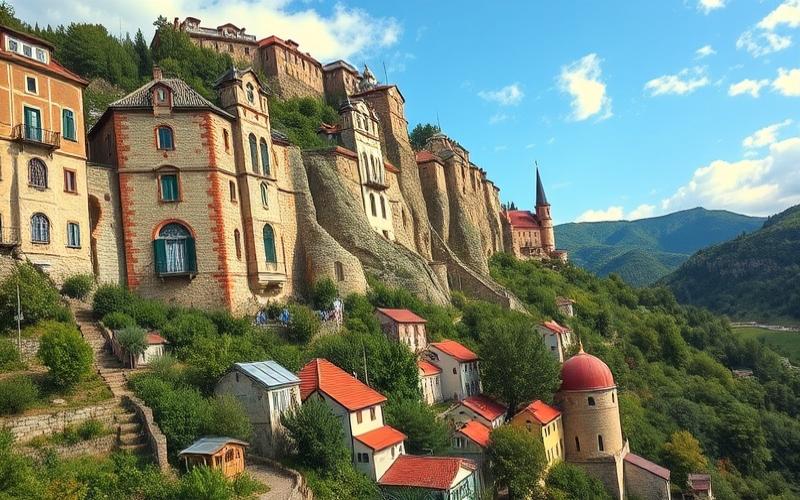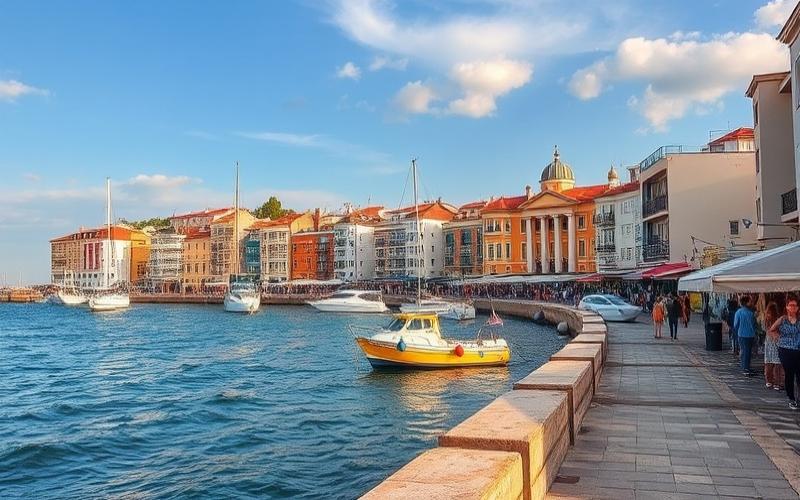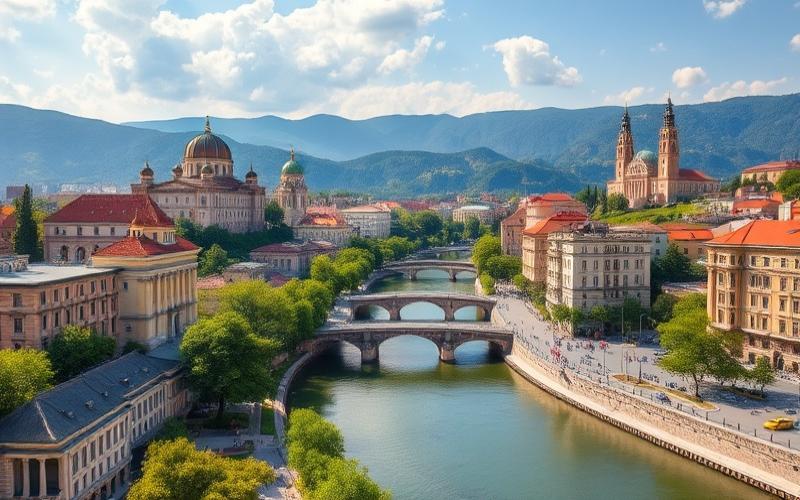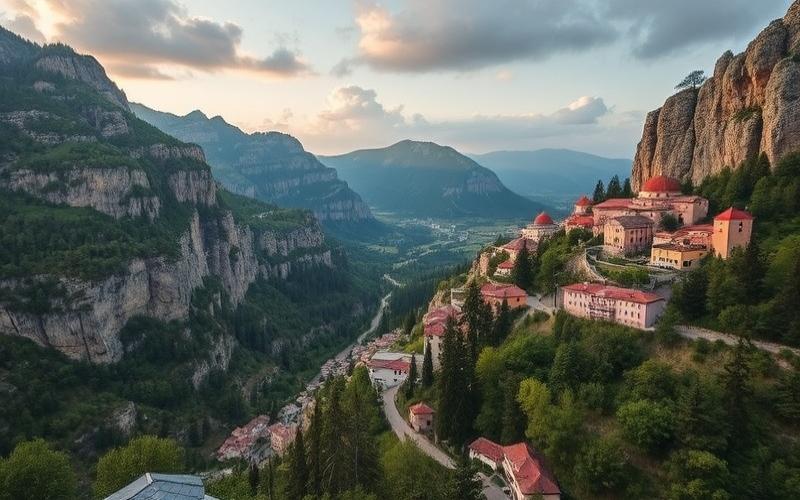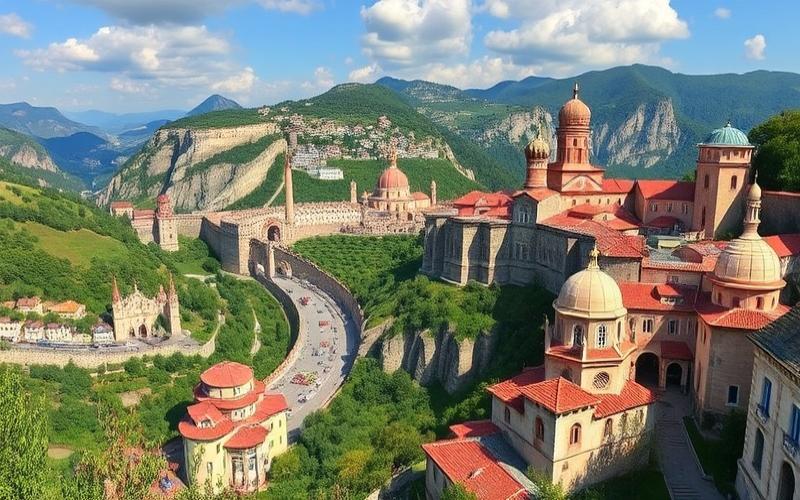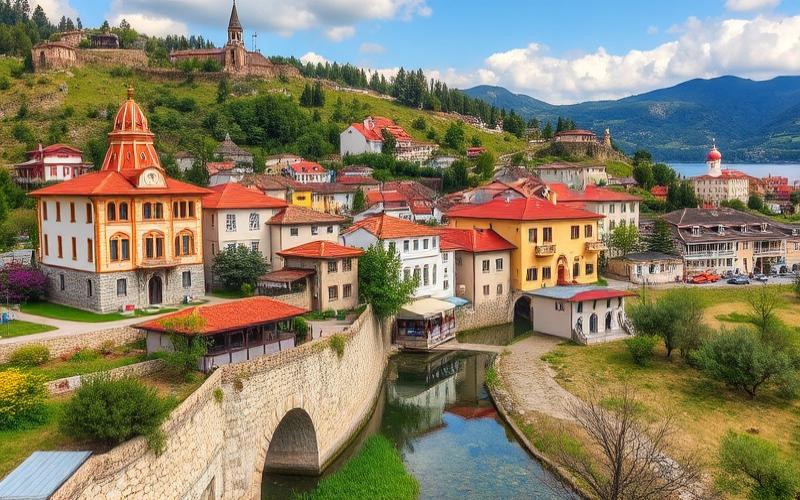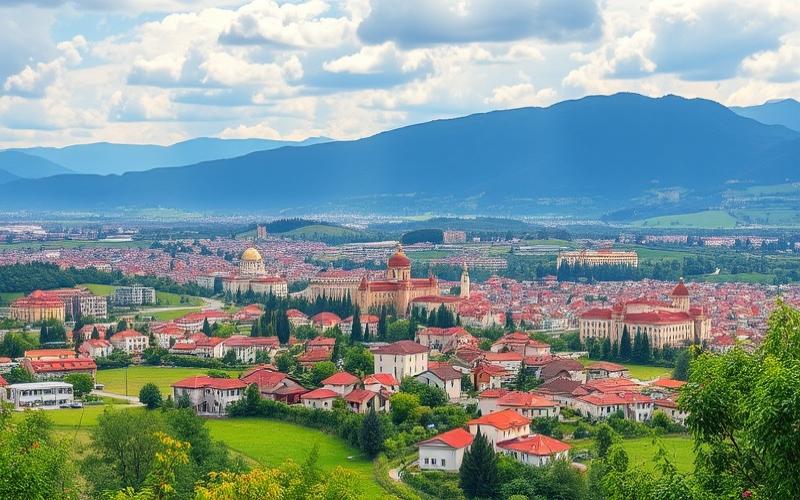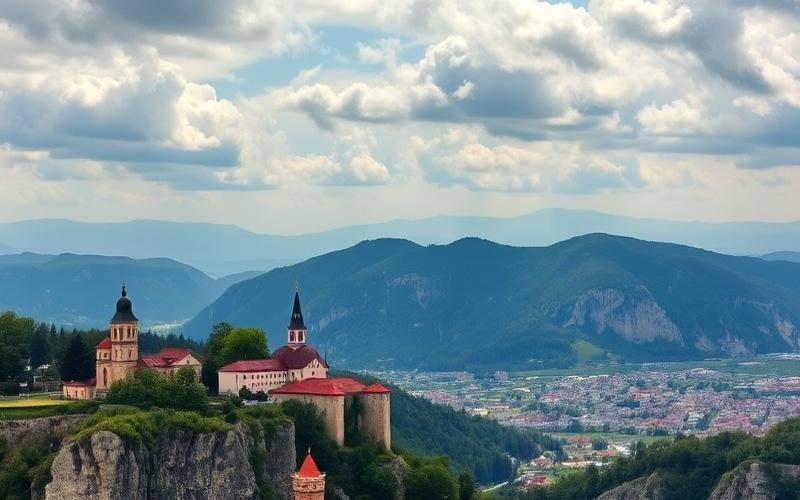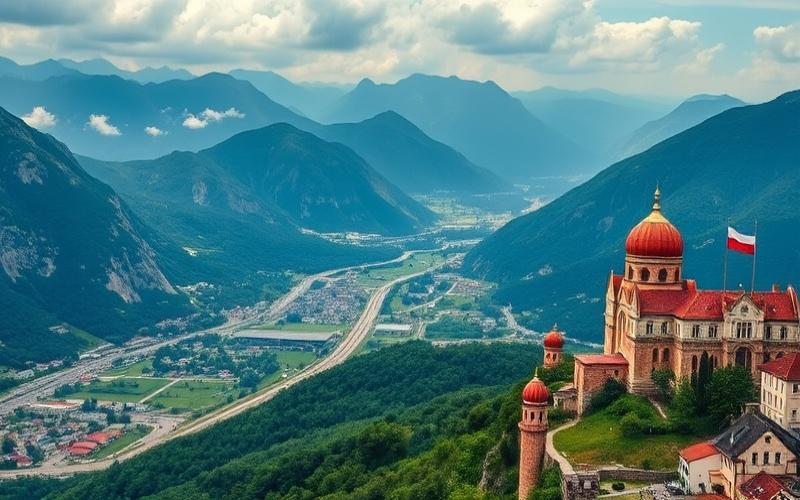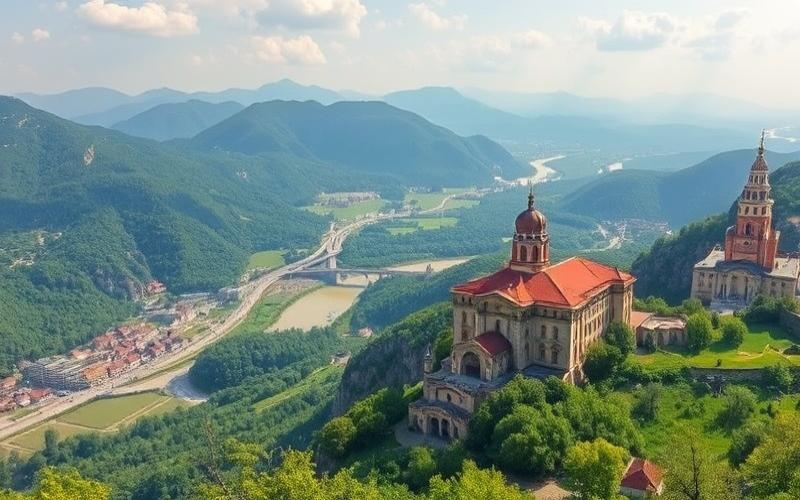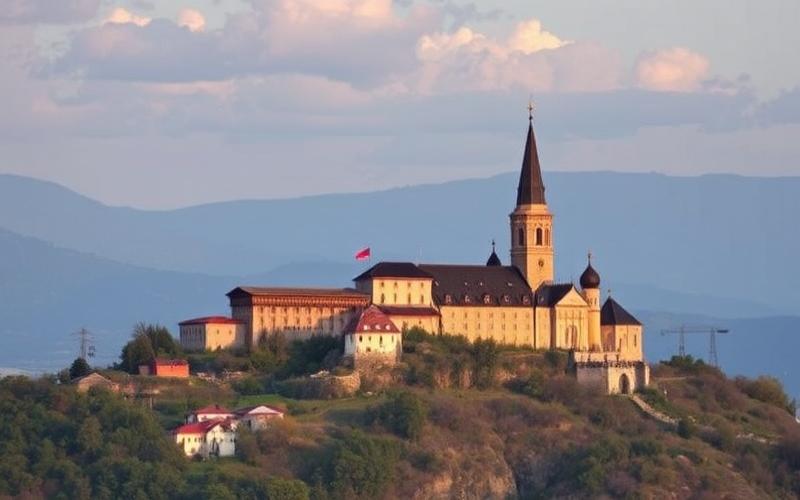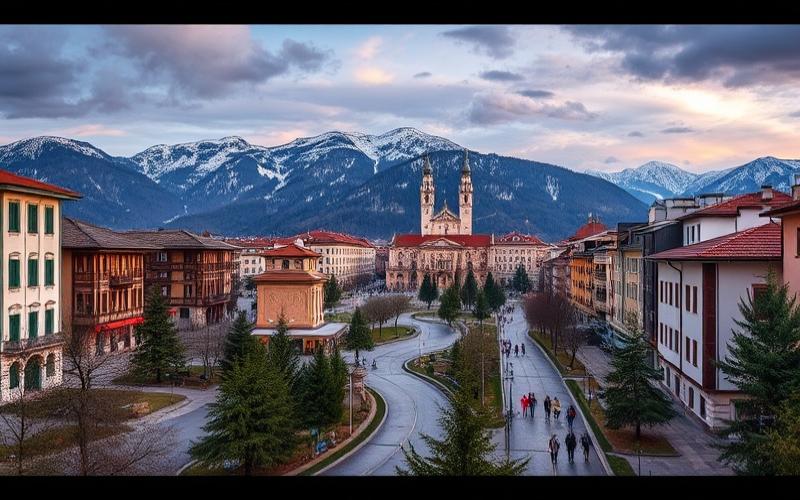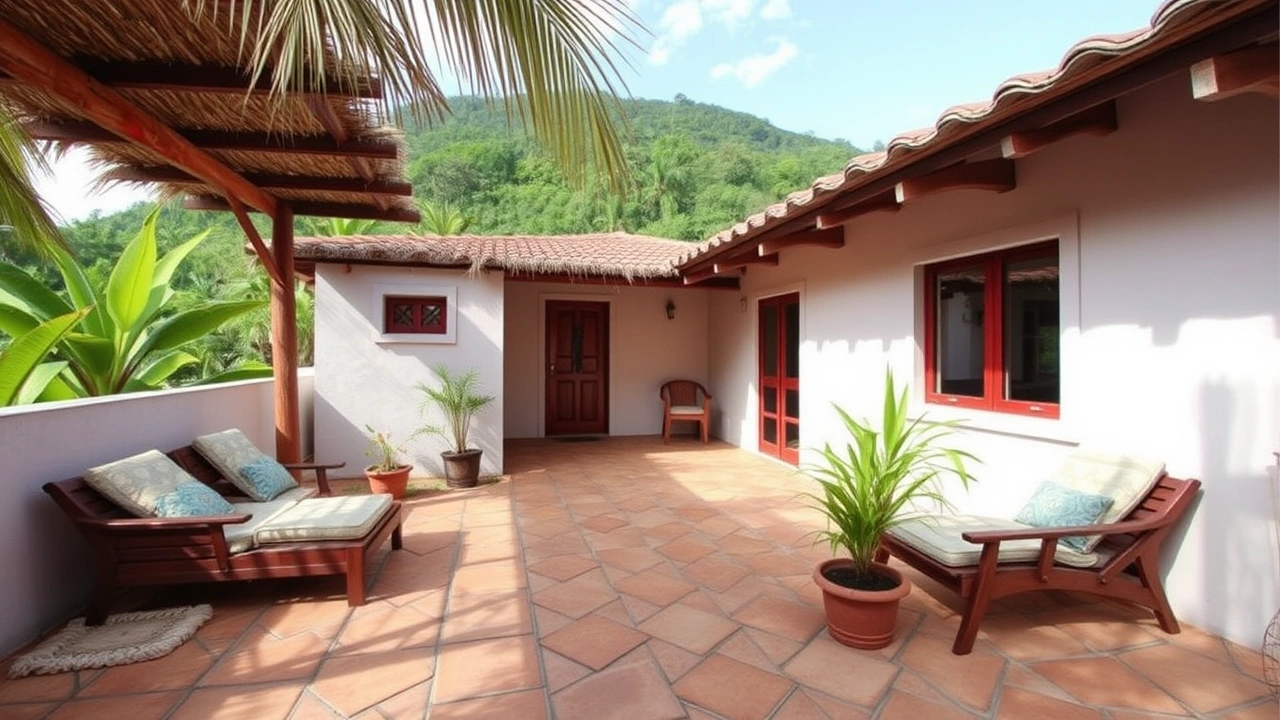
 Published on and written by Cyril Jarnias
Published on and written by Cyril Jarnias
Bulgaria, a European Union member since 2007, is attracting more and more foreign investors thanks to its dynamic real estate market and favorable tax conditions. Whether you’re looking for a sunny vacation home or a profitable rental investment, Bulgaria offers numerous opportunities. Discover in this article everything you need to know about buying property in Bulgaria as a foreigner.
A Legal Framework Favorable to Foreign Investors
Unlike some countries that impose restrictions on foreign buyers, Bulgaria has adopted very open legislation regarding real estate investment. Foreign nationals, whether from the European Union or not, can freely acquire real estate properties in Bulgaria. This open policy reflects the country’s desire to attract foreign capital to boost its economy.
However, there is one important restriction to be aware of: foreigners cannot directly purchase agricultural or forest land. To overcome this limitation, it’s possible to establish a Bulgarian legal entity that can then acquire these types of lands. This solution is frequently used by foreign investors looking to develop large-scale agricultural or tourism projects.
The property purchase process in Bulgaria is relatively simple and fast. Once the property is chosen and the price negotiated, the transaction can be finalized within a few weeks. However, it’s highly recommended to hire a local attorney to ensure all procedures are carried out correctly.
Good to know:
Bulgaria imposes no restrictions on the resale of properties acquired by foreigners. You can therefore sell your property whenever you wish, without any particular constraints.
Attractive Taxation for Investors
One of Bulgaria’s main advantages for real estate investors is its particularly favorable taxation. With an income and corporate tax rate set at 10%, Bulgaria offers one of the most competitive tax systems in Europe.
For non-resident owners, rental income is taxed at the flat rate of 10%. There is no progressive scale like in many other countries. Additionally, deductible expenses are relatively generous, which helps optimize the profitability of rental investments.
Regarding property tax, it is also very moderate in Bulgaria. Its amount varies between 0.01% and 0.45% of the property’s tax value, depending on the municipality. For comparison, rates in many Western countries are significantly higher.
Another significant tax advantage: there is no real estate wealth tax in Bulgaria. Investors can therefore build substantial real estate assets without being penalized tax-wise.
Finally, when selling a property, capital gains are taxed at a rate of 10%. This rate applies to the difference between the sale price and the purchase price, after accounting for certain deductions related to the holding period.
Good to know:
Bulgaria has signed tax treaties with many countries to avoid double taxation. It’s important to research the application procedures of these treaties to optimize your tax situation.
Essential Documents to Complete Your Purchase
To successfully carry out your property purchase project in Bulgaria, you’ll need to gather several essential documents:
- A copy of your valid passport or identity card
- A criminal record extract from your home country (dated within the last 6 months)
- Proof of income or financial resources
- Proof of residence in your country of residence
These documents will need to be translated into Bulgarian by a certified translator. It’s also recommended to have these documents legalized or apostilled in your home country to facilitate administrative procedures in Bulgaria.
On the seller’s side, make sure to obtain the following documents:
- The property title deed (Notarialen Akt)
- A certificate of no mortgage
- The property’s cadastral plans
- Building permits and compliance certificates for new properties
Your Bulgarian attorney will verify the authenticity and validity of all these documents before signing the sales deed.
Once all documents are gathered, the transaction will be finalized before a Bulgarian notary. The notary will draft the official sales deed and proceed with registering the property transfer with the local land registry.
Good to know:
It’s possible to purchase property in Bulgaria without being physically present in the country, by giving power of attorney to your attorney. This option is particularly convenient for foreign investors.
Key Steps in Property Acquisition in Bulgaria
The property purchase process in Bulgaria typically unfolds in several well-defined steps:
1. Property search: You can conduct your research online or use a local real estate agency. It’s recommended to visit several properties before making your choice.
2. Price negotiation: Once you find the ideal property, you can begin negotiations with the seller. Don’t hesitate to be accompanied by a professional for this crucial step.
3. Signing a preliminary sales agreement: This preliminary document sets the transaction conditions and commits both parties. A deposit is typically paid at this stage.
4. Due diligence: Your attorney will conduct all necessary checks regarding the property and the seller. This step is essential to secure your investment.
5. Securing financing: If you need a loan, this is the time to finalize your application with a Bulgarian or foreign bank.
6. Signing the sales deed: The transaction is formalized before a Bulgarian notary. The remaining balance is paid to the seller at this time.
7. Property registration: The notary handles registering the property transfer with the local land registry.
The entire process can typically be completed in 4 to 8 weeks on average, depending on the transaction’s complexity and the responsiveness of the various stakeholders.
Good to know:
It’s possible to open a bank account in Bulgaria as a non-resident. This can greatly facilitate your real estate transactions and future property management.
Investment Opportunities Not to Miss
The Bulgarian real estate market offers numerous opportunities for foreign investors. Here are some particularly interesting segments to explore:
Residential real estate in major cities: Sofia, the capital, experiences strong rental demand, particularly from expatriates and students. Well-located apartments offer attractive rental yields, often exceeding 5% annually.
Seaside resorts: Coastal cities like Varna or Burgas attract many tourists each year. Investing in an apartment or villa for seasonal rental can prove very profitable.
Ski resorts: Bansko, Borovets, or Pamporovo are popular destinations for winter sports enthusiasts. Buying property in these resorts allows combining personal use with rental profitability.
Office real estate: With the growth of the technology sector in Bulgaria, demand for modern office spaces is increasing, particularly in Sofia.
Renovation projects: Purchasing older properties for renovation in historic city centers can offer excellent medium-term capital appreciation opportunities.
Regardless of the option chosen, it’s crucial to thoroughly study the local market and the area’s development prospects before investing.
Good to know:
Bulgaria benefits from significant European funds to modernize its infrastructure, which should support real estate appreciation in the coming years.
Pitfalls to Avoid to Secure Your Investment
Although the Bulgarian real estate market is generally healthy and well-regulated, there are certain pitfalls to be wary of:
Properties without clear title: Ensure that the seller has all rights to the property they’re offering for sale. Your attorney should conduct all necessary checks with the land registry.
Promises of unrealistic returns: Be wary of investment offers promising exceptional returns without risk. Always favor a realistic approach based on thorough analysis of the local market.
Areas with uncertain development: Some real estate projects are launched in areas with uncertain future development. Research local urban planning thoroughly before investing.
Hidden fees: Ensure you have a clear understanding of all costs related to your purchase (notary fees, taxes, agency fees, etc.) to avoid unpleasant surprises.
Remote management: If you don’t live in Bulgaria, managing your property can be complex. Plan to hire a trusted local manager to assist you.
By following these tips and surrounding yourself with competent professionals, you’ll maximize your chances of making a successful real estate investment in Bulgaria.
Good to know:
Bulgaria has a digitized cadastre system accessible online. This tool can help you verify certain information about properties you’re interested in before even traveling.
Disclaimer: The information provided on this website is for informational purposes only and does not constitute financial, legal, or professional advice. We encourage you to consult qualified experts before making any investment, real estate, or expatriation decisions. Although we strive to maintain up-to-date and accurate information, we do not guarantee the completeness, accuracy, or timeliness of the proposed content. As investment and expatriation involve risks, we disclaim any liability for potential losses or damages arising from the use of this site. Your use of this site confirms your acceptance of these terms and your understanding of the associated risks.


